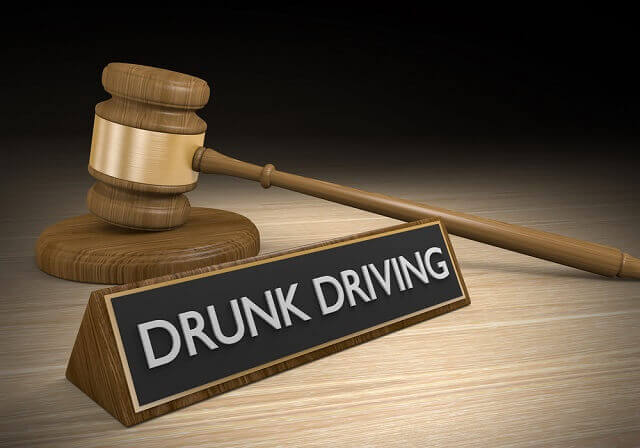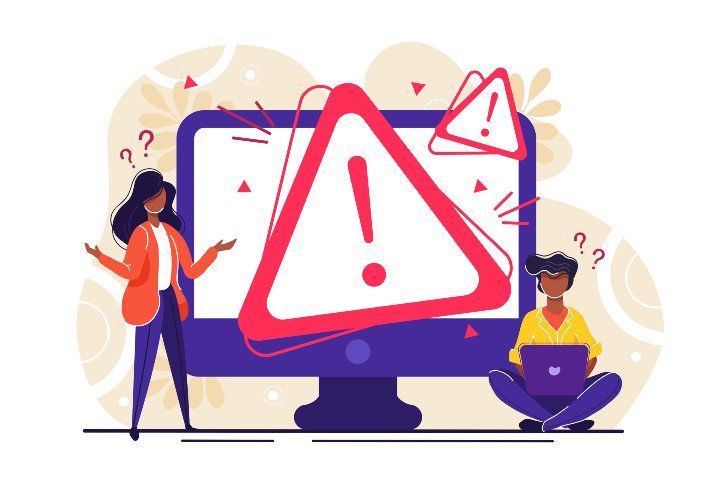When you’re accused of a DWI felony, the consequences hit much harder than a typical traffic ticket or even a misdemeanor charge. You’re now staring down potential prison time, a permanent criminal record, license suspension, and personal and professional fallout that can follow you for decades. That’s exactly why learning how to protect your rights isn’t just helpful—it’s essential.
In this article, we’ll guide you through what a DWI felony means in plain terms, how it differs from a misdemeanor, which rights still protect you, and what specific steps you can take to build your defense. Using real-life examples, practical tips, and sharp legal analysis, we’ll walk you through what you’re truly up against—and how you can push back with confidence.

What Is a DWI Felony?
A DWI felony—Driving While Intoxicated—becomes more than just a traffic offense when the circumstances elevate its severity. In Texas and many other states, a DWI turns into a felony when:
- It’s your third or subsequent DWI offense
- The DWI causes injury or death
- A child under 15 was in the vehicle during the offense
- You have a prior felony DWI on record
- You’re driving intoxicated on a restricted license
These scenarios trigger felony-level charges that often result in years behind bars, financially devastating fines, and a criminal history that could block access to housing, jobs, and even voting rights. In other words, the stakes are high.
Real-Life Example: When a Night Out Turns Into a Felony
Take Luis, a 37-year-old mechanic from Houston. He had two misdemeanor DWI convictions, both more than five years old. After attending a friend’s birthday gathering, he drove home and got pulled over. Expecting another misdemeanor charge, he instead learned he was facing a DWI felony. The prosecutor informed him that this third arrest carried the potential for a 10-year prison sentence.
That moment changed everything. Suddenly, this wasn’t just about court—it was about freedom and future.
Misdemeanor vs. Felony DWI: What’s the Real Difference?
To understand where your case stands, you need to recognize how a DWI felony differs from a misdemeanor.
Misdemeanor DWI
- Generally a first or second offense
- BAC (Blood Alcohol Concentration) of 0.08% or higher
- Punishments include jail time (up to one year), fines, probation, and license suspension

Felony DWI
- Third or more offense
- DWI causing bodily harm or death (often called Intoxication Assault or Manslaughter)
- DWI with a minor in the vehicle
- Penalties can include 2–20 years in prison, license revocation, and thousands in fines
When you face a DWI felony, your case moves from inconvenience to high-risk territory.
Your Rights During a DWI Felony Investigation
Even under felony accusations, you still hold legal rights. But knowing how and when to use them can make all the difference in the outcome of your case.
Right to Remain Silent
You aren’t required to answer every question. If an officer pulls you over, you can politely decline to explain where you’re going or how much you’ve had to drink. Remember: what you say can and will be used against you.
Right to an Attorney
Don’t wait. Request an attorney as soon as you’re detained. Speaking on your own—especially during a DWI felony charge—can do more harm than good.
Protection Against Unlawful Searches
Officers must follow specific procedures during sobriety tests, breath tests, or blood draws. If they skipped your consent or failed to secure a warrant where required, your lawyer can often get that evidence excluded.
Due Process
You have a legal right to a fair trial. That includes access to all evidence against you, the ability to cross-examine witnesses, and the chance to present your side of the story.
What Happens After a DWI Felony Arrest?
From the moment of arrest, things start moving quickly. Understanding each stage helps you stay a step ahead.
1. Booking and Bail
After your arrest, authorities take your fingerprints, mugshot, and place you in holding. A judge then decides whether to grant bail. The seriousness of your record and the offense itself can influence whether you walk free or stay behind bars.
2. Arraignment
This court appearance involves hearing the official charges and entering a plea. With an attorney at your side, you can immediately start challenging weak evidence or arguing for pretrial release.
3. Pretrial Motions
Here’s where much of the legal battle happens. Your lawyer may file motions to suppress evidence, question how you were stopped, or even argue to dismiss the case altogether.

4. Trial (If Necessary)
While many DWI felony cases end in plea deals, some go to trial. If yours does, prepare for a tough battle. You’ll need expert witnesses, in-depth evidence analysis, and an experienced trial lawyer.
Defending Against DWI Felony Allegations
Facing a DWI felony doesn’t mean you’re doomed. Your defense could turn the tide—especially if your lawyer takes a smart, proactive approach.
Challenging BAC Evidence
Breathalyzers and blood tests aren’t always accurate. Machines can be faulty, operators may be untrained, and labs sometimes mishandle samples. Your lawyer should investigate every step.
Illegal Stop or Arrest
Did the officer have legal grounds to pull you over? If not, everything collected after the stop—breath tests, field sobriety tests—might be inadmissible in court.
No Proof of Impairment
When BAC levels are borderline or missing, prosecutors often rely on behavior or officer opinion. These can be highly subjective—and vulnerable to challenge.
Prior Conviction Errors
If your felony charge relies on prior DWIs, your lawyer can check whether those convictions were legally sound. A successful challenge could reduce your felony charge.
What Are the Penalties for a DWI Felony in Texas?
Every charge has its own sentencing guidelines, but here’s a typical breakdown:
Third DWI (Third-Degree Felony)
- 2–10 years in prison
- Up to $10,000 fine
- License suspension up to 2 years
- Ignition interlock requirement
- Mandatory completion of alcohol education
Intoxication Assault (Third-Degree Felony)
- Injuring someone while driving intoxicated
- 2–10 years in prison
Intoxication Manslaughter (Second-Degree Felony)
- Causing someone’s death in a DWI accident
- 2–20 years in prison
- Possible civil liability through a wrongful death lawsuit
DWI with Child Passenger (State Jail Felony)
- 180 days to 2 years in state jail
- Up to $10,000 in fines
These penalties can be life-changing. However, proper defense strategies may help reduce them—or avoid them altogether.
Long-Term Consequences of a DWI Felony
Even after serving time or paying fines, a DWI felony follows you in ways many don’t expect. The sentence may end, but the barriers it creates can linger for decades.
Employment Hurdles
Many employers conduct background checks. A felony conviction can block you from working in education, healthcare, government, or transportation. Even private employers may hesitate to hire someone with a felony on their record.
Housing Barriers
Landlords often reject rental applications due to felony convictions—especially those involving risk to public safety. This can force individuals into unstable living situations or limit access to affordable housing options.
Financial Burden
Beyond court costs and fines, you may face costs for probation, required classes, increased insurance, or restitution payments. These ongoing expenses often pile up and create lasting financial strain.

Social Reputation
A felony conviction carries stigma. Unfortunately, the social fallout often persists long after your legal penalties end. Relationships, trust, and opportunities can be permanently affected by public perception.
Can a DWI Felony Ever Be Expunged?
In most cases, you can’t expunge a DWI felony in Texas. That’s a tough pill to swallow—but it reflects how seriously the state treats these offenses. Unlike some misdemeanors, these charges tend to remain on public record indefinitely.
However, if your case was dismissed or you were acquitted, you may qualify for expungement. And under certain non-conviction outcomes, your attorney may help seal your record through an order of non-disclosure. While not a full erasure, sealing can limit who sees your criminal history.
Always consult with a criminal defense attorney to explore your eligibility and next steps. They can help assess your situation, determine the best legal path, and guide you toward restoring your record where possible.
How to Protect Yourself When Facing a DWI Felony
The actions you take after being charged can directly impact your future. Don’t wait. Start with these essential steps:
- Remain silent: Don’t answer questions without a lawyer.
- Hire a skilled DWI attorney: Look for one with proven felony defense experience.
- Organize evidence: Receipts, medical reports, GPS data—gather it all.
- Follow court rules: Stay on time, stay sober, and comply with conditions.
- Avoid social media posts: Anything you say online could hurt your defense.

Final Story: How Jacob Beat a Felony DWI Charge
Jacob, a 42-year-old truck driver, faced a DWI felony after his third arrest. But his attorney found that a prior conviction had been entered without Jacob receiving proper legal counsel. That invalid conviction was removed, reducing his current felony to a misdemeanor. He kept his job, stayed out of prison, and got his life back on track.
This wasn’t luck. It was strategy, timing, and solid legal defense.
Final Thoughts: Don’t Face a DWI Felony Alone
A DWI felony charge could reshape your entire life—but it doesn’t have to ruin it. While the road ahead may be difficult, it’s not impassable. With the right legal help, a proactive mindset, and clear understanding of your rights, you can protect your future.
The clock starts ticking the moment you’re charged. The sooner you act, the better your chances of beating or minimizing the damage. Remember, your best defense isn’t panic—it’s preparation.


